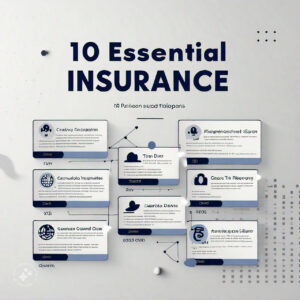How Long Does a Life Insurance Policy Last?
When it comes to life insurance, it is important to understand the duration of the policy and the factors that can impact its lifespan. A life insurance policy can last anywhere from a few years to the policyholder’s entire lifetime, and the length of the policy will depend on the type of policy and the individual’s needs and circumstances. In this article, we will take a deep dive into the different types of life insurance policies and how long each one lasts.
Term Life Insurance
Term life insurance is the most straightforward and popular type of life insurance. As the name suggests, it provides coverage for a specified term, usually ranging from 10 to 30 years. If the policyholder dies during the term of the policy, the death benefit will be paid to the beneficiaries. However, if the policyholder does not die during the term, the policy will simply expire, and the policyholder will not receive any death benefit.
Whole Life Insurance
Whole life insurance, also known as permanent life insurance, is a type of policy that provides coverage for the policyholder’s entire life, as long as the premiums are paid. This type of policy includes a savings component that grows over time and can be used by the policyholder to help meet financial goals. The death benefit for whole life insurance is guaranteed to be paid out, no matter when the policyholder dies.
Universal Life Insurance
Universal life insurance is a type of permanent life insurance that combines the death benefit of whole life insurance with the flexibility of term life insurance. This type of policy allows the policyholder to adjust the premium payments and death benefit as needed, making it a popular choice for individuals with changing life circumstances. Universal life insurance also includes a savings component, similar to whole life insurance, that can be invested for potential growth.
Variable Life Insurance
Variable life insurance is a type of permanent life insurance that allows the policyholder to invest the savings component of the policy in a variety of investment options, including stocks, bonds, and mutual funds. This type of policy offers the potential for greater returns, but also comes with more risk. The death benefit for variable life insurance is tied to the performance of the investment options selected by the policyholder.
How to Choose the Right Life Insurance Policy
When it comes to choosing the right life insurance policy, there are several factors to consider. These include the policyholder’s age, health, financial needs, and personal goals. It is also important to consider the type of coverage needed, as well as the length of time the coverage is needed.
For individuals who are looking for coverage for a specific period of time, term life insurance is the best option. For those who want lifelong coverage, whole life insurance or universal life insurance may be a better choice. It is also important to consider the policyholder’s financial goals and risk tolerance when choosing a life insurance policy.
Conclusion
In conclusion, the length of a life insurance policy will depend on the type of policy and the individual’s needs and circumstances. It is important to understand the different types of life insurance policies and the factors that can impact the policy’s lifespan, in order to make an informed decision. By choosing the right life insurance policy, individuals can ensure that their loved ones are protected and their financial goals are met, no matter what the future holds.






